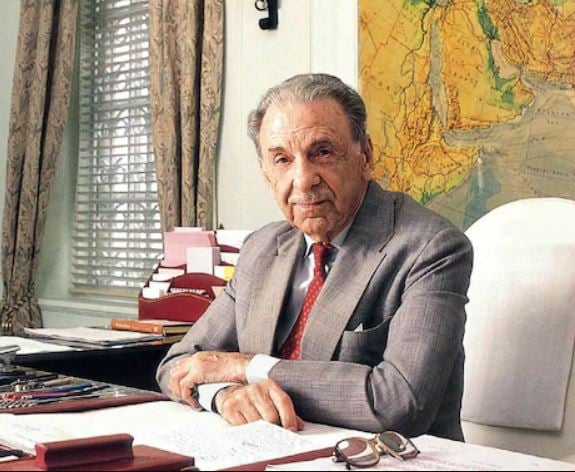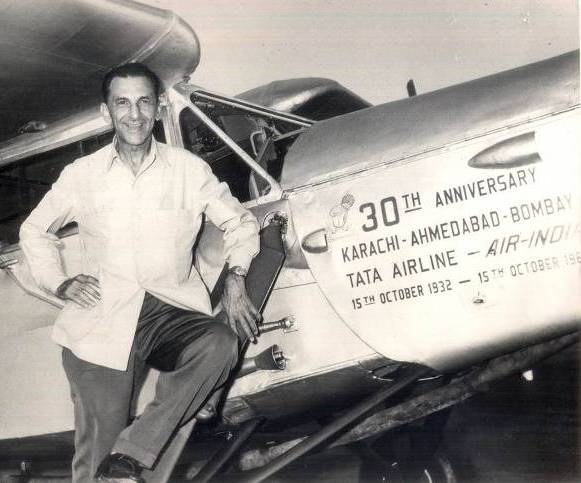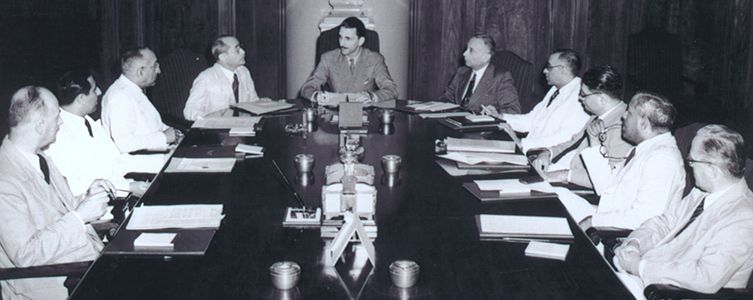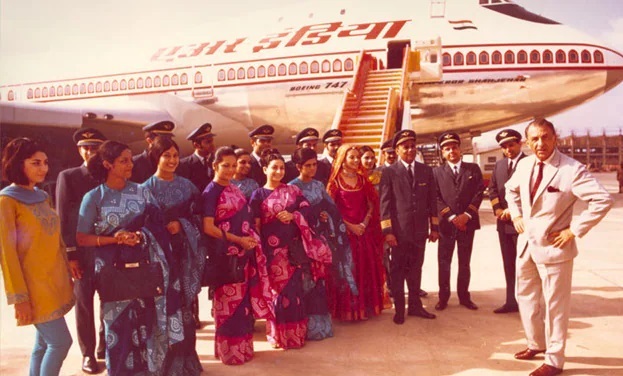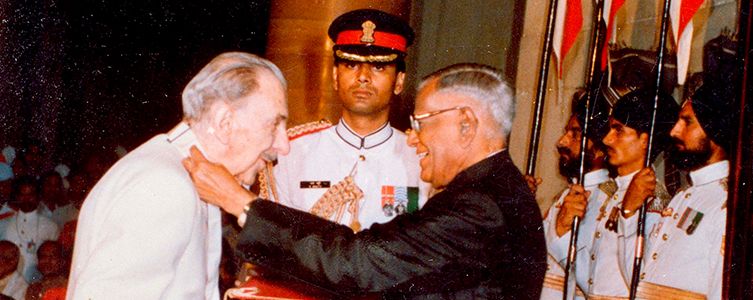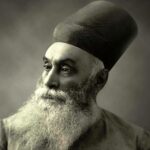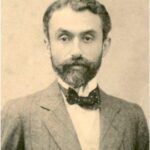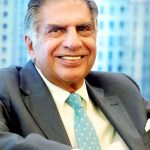J.R.D. Tata Age, Death, Wife, Children, Family, Biography & More
| Bio/Wiki | |
|---|---|
| Full name | Jehangir Ratanji Dadabhoy Tata [1]Tata |
| Profession(s) | • Aviator • Industrialist • Businessman • Philanthropist |
| Physical Stats & More | |
| Height (approx.) | in centimeters- 174 cm in meters- 1.74 m in feet & inches- 5’ 7” |
| Eye Colour | Dark Blue |
| Hair Colour | Grey |
| Career | |
| Founded | • Air India • Tata Motors • Tata consultancy Services • Tata Chemicals • Lakmé Cosmetics • Tata Institute of Fundamental Research • Bombay Flying Club • Tata Management Training Centre • Tata Institute of Social Sciences • Voltas • Titan Industries • National Institute of Advanced Studies • Tata Interactive Systems (now MPS Interactive Systems) • Population Foundation of India (co. founded) |
| Awards, Honours, Achievements | • 1930: Won the second position in the Aga Khan Aviation Race • 1957: Awarded Padma Vibhushan • 1974: Became Air Vice Marshal, third highest active rank in the Indian Air force • 1975: Received Sir Jehangir Ghandy Medal for Industrial peace • 1979: Tony Jannus Award for Aviation • 1983: Became Commander of the French Legion of Honour • 1985: Gold Air Medal • 1986: Edward Warner Award • 1988: Daniel Guggenheim Medal for aviation and the Dadabhai Naoroji Memorial Award • 1992: United Nations Population Award • 1992: Bharat Ratna in 1992 for his contribution to Indian industries |
| Personal Life | |
| Date of Birth | 29 July 1904 (Friday) |
| Birthplace | France, England |
| Date of Death | 29 November 1993 |
| Place of Death | Geneva, Switzerland |
| Age (at the time of death) | 89 Years |
| Death Cause | Kidney Infection [2]India Today |
| Zodiac sign | Leo |
| Signature |  |
| Nationality | Indian |
| Hometown | Paris |
| School | He studied at various schools in France, India, Japan, and England. In India he studied at the Cathedral School in Bombay. |
| College | Grammar School, England |
| Educational Qualification | J.R.D. Tata was a certified Aviator and also went to England for his higher studies. |
| Ethnicity | Parsi [3]Tata |
| Controversies | After the Nehru Government made a decision to nationalize Air India, J.R.D. tried to retain the ownership of the airlines, but at the end, it went under government's control and became a government entity. [4]Tata |
| Relationships & More | |
| Marital Status | Married |
| Marriage Year | 1930 |
| Family | |
| Wife/Spouse | Thelma Vicaji Tata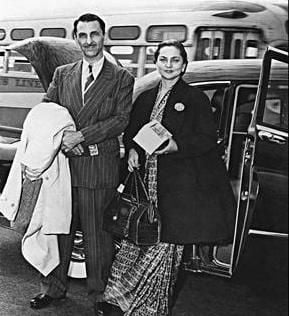 |
| Children | J.R.D. Tata had no children |
| Parents | Father- Ratanji Dadabhoy Tata (Businessman) Mother- Suzanne Sooni Brière 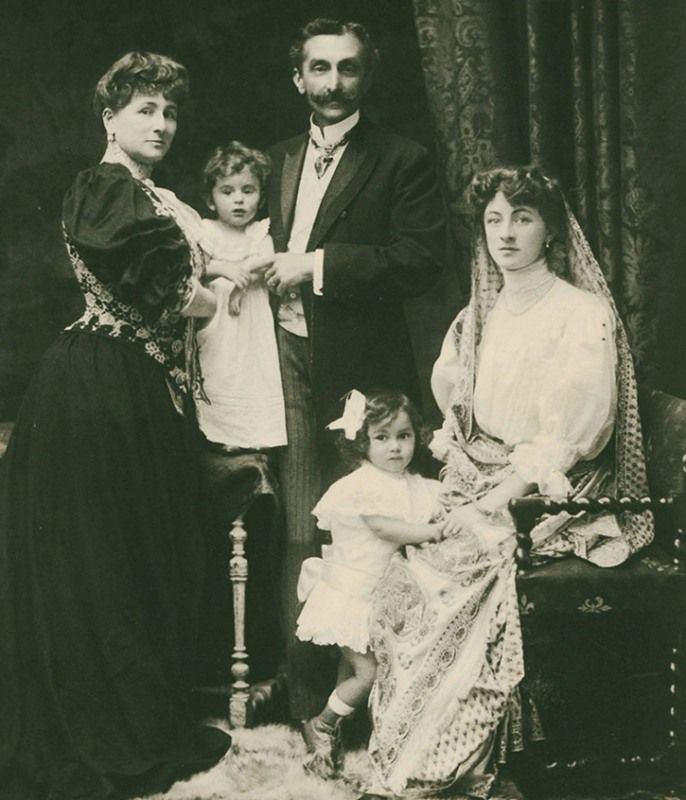 |
| Siblings | Brother(s)- 2 • Darab (Businessman) • Jamshed (Businessman) Sister(s)- 2 • Sylla • Rodabeh 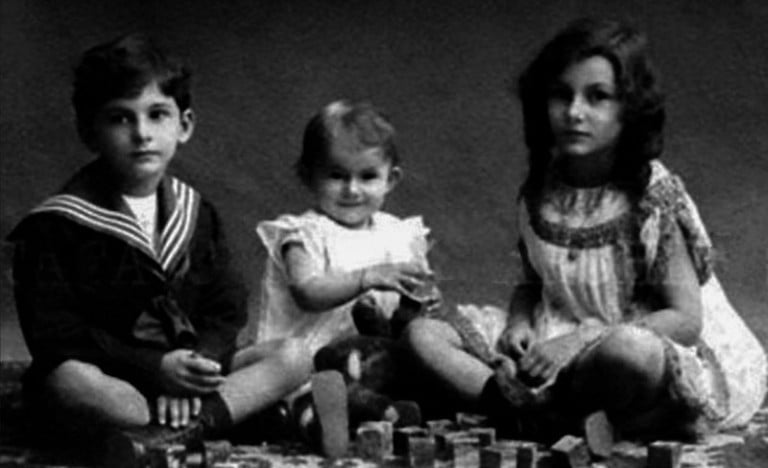 |
| Family Tree | 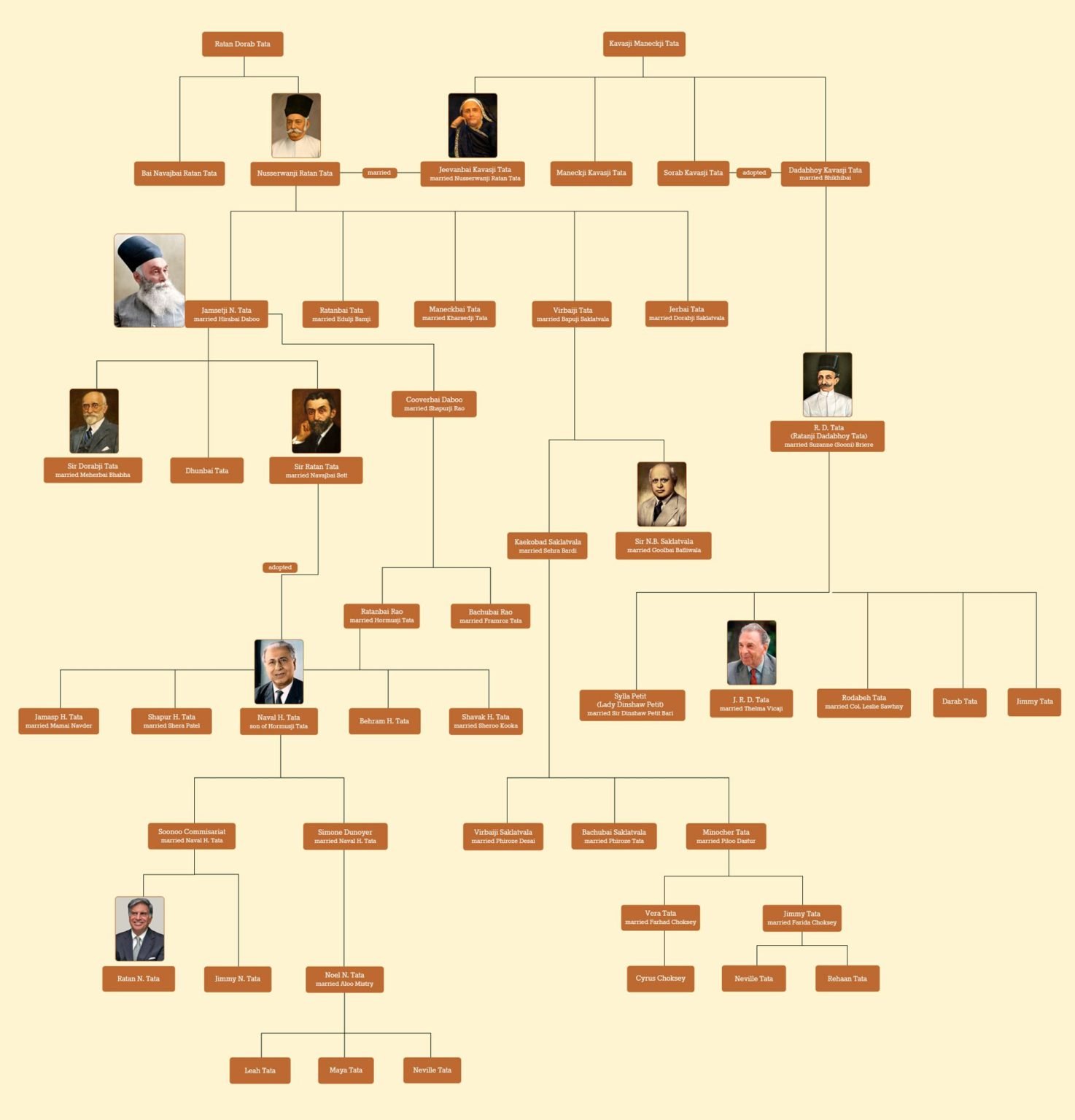 Note: To know more about the Tata family, read our Tata Family Tree post. |
Some Lesser Known Facts About J.R.D. Tata
- Jehangir Ratanji Dadabhoy Tata (J.R.D. Tata) was an Indian aviator and industrialist. He is known as the father of civil aviation in India. He was also a philanthropist, entrepreneur, and the chairman of the Tata Group. He was the first licensed pilot in India who built the first international airline in the country, now known as Air India. [5]TATA Steel He invested in India’s potential for industrial growth and founded multiple entities in the Tata Group. He laid the foundation of Titan Industries, Tata Salt, Tata Motors, Voltas, Tata Consultancy Services, and Air India.
- He was from a renowned business family in India and spent his early life in France. His mother was French and that was the reason French was his first language.
- His love for aviation evolved when he shifted to a new house with his family. This house was located at the Hardelot beach in France, and an aviator Louis Bleriot was their neighbour. His fascination for aviation grew watching him, and it inspired him to become a pilot; he had his first airplane ride at the age of 15. [6]Tata Central Archives
- J.R.D. Tata studied in four countries in total including England, France, India, and Japan. He shifted between Bombay and Paris with his family from 1909 to 1917. During this time, he studied at the Cathedral School in Bombay. He also went to England for pursuing higher studies after the death of his mother. [7]Tata Central Archives
- J.R.D. Tata had the citizenship of France and that is why he had to serve the French Army for a minimum period of a year. He did so and returned back to India in 1925. After returning to his homeland, he worked as an unpaid apprentice at the Tata Group. After the death of his father in 1926, J.R.D. Tata became the director of Tata Sons. He gave up his French citizenship in 1929 and became the first licensed pilot in the country. [8]Tata Central Archives
- He went on a trip to Paris, and there he met Thelma Vicaji. They both fell in love and got married to each other in 1930.
- In the same year, he participated in the Aga Khan Aviation Race and finished second.
- He laid the foundation of India’s first airlines by establishing a courier service named Tata Air Mail, which connected Bombay (now Mumbai), Ahemdabad, Karachi, and Madras (now Chennai). He also piloted the first flight of this service, from Karachi to Bombay.
- He became the chairman of Tata Sons in 1938 and held this position for a long time.
- It took him only a few years to earn success for his air mail venture, and it became India’s first domestic airline, which was renamed as Tata Airlines. In 1946, this company was renamed Air India.
- He took great initiative in expanding Tata company’s business and did so by founding Tata Steel, Tata Power, and Tata Hotels. He took the initiative of diversifying the company and founded new entities in the automobile, pharmaceuticals, financial services, and information technology sectors.
- J.R.D. Tata’s company Air India was nationalized in 1953, the government insisted him to continue as the chairman of Air India, and he agreed. In 1978, he finally stepped down from the chairman’s position at Air India. [9]The Economic Times
- In an interview, he talked about his love-hate relationship with his friend Morarji Desai. He said,
It wasn’t a good experience but it was not unexpected. Morarji Desai was the Prime Minister of India. He was the man with whom I had a whole life of love-hate. We were friends and at the same time, the man was quite impossible to deal with.” [10]Tata
- Pt. Nehru was his good friend, but they both always had conflicting views about economic policies. In an interview, J.R.D. Tata talked about this and said,
You don’t argue with Jawaharlal. He didn’t want to discuss it. But the interesting thing was I was a good friend of his. He trusted me. He knew I admired him. But he knew I disagreed with all his economic policies, and I even didn’t agree with his foreign policy. I felt that Krishna Menon and others like that were pro-Soviet. So I never was able thereafter to discuss economic matters.” [11]India Today
He also talked about how Pt. Nehru and his wife would show their disagreement with his views. He said,,
Yes. He and Mrs Gandhi later developed this similar little polite way of telling me to shut up. Jawaharlal, when I started to bring up the subject of economic policy, would turn around and look out of the window. Mrs Gandhi did something else.” [12]Tata
- In 1957, he received Padma Vibhushan for his service to the development of the Indian economy.
- He graced the position of commander of the French Legion of Honour in 1983. [13]Tata Central Archives
- He gave up his leadership in Tata Sons in 1991 after making it reach the annual revenue of $4 Billion. The asset valuation of the Tata conglomerate grew to $5 Billion from $100 Million and housed a total of 95 companies under his leadership. [14]Tata
- J.R.D. Tata was a philanthropist who worked for human welfare and laid the foundation of many institutions that focused on artistic, educational, and medical developments in the country. He established the J.R.D. Tata Trust in 1944 and played a significant role in commencing the Tata Institute of Fundamental Research in 1945. He also founded the Tata Institute of Social Science, Tata Memorial Hospital, National Institute of Advanced Science, and the National Centre for Performing Arts.
- He was the man who began promoting family planning and founded the Family Planning Foundation in 1971. He also came up with the Tata administrative services and staff college for grooming Indian talent to lead businesses.
- He received a series of International awards including Edward Warner Award (1986), Tony Jannus Award (1979), and Gold Air Medal (1985). [15]Tata Central Archives He also received the Dadabhai Naoroji Memorial Award and Daniel Guggenheim Medal for aviation.
- Later, he sold his Bombay apartment and a significant portion of his shares to establish the J.R.D. and Thelma Tata Trust. This trust works for the underprivileged women in the country.
- He was a man who had a huge interest in sports from the beginning, and used to devote a certain amount of time to exercise even in his 80s. He used to play tennis and golf and used to have weight training till his mid- 70’s. [16]Tata
- He received India’s highest civilian honour, Bharat Ratna in 1992 for the series of industrial developments he bought in the country.
- He often flew Air India flights and showed keen interest in every minute detail of the aircraft and flight. Once on a flight with L.K. Jha, he even went to inspect toilets and fixed toilet rolls on the flight.
- J.R.D. Tata was in Paris when he was diagnosed with a kidney infection. He passed away due to this disease on 29 November 1993 in Geneva, Switzerland, and was buried at the Pere Lachaise Cemetry in Paris.
References/Sources:

